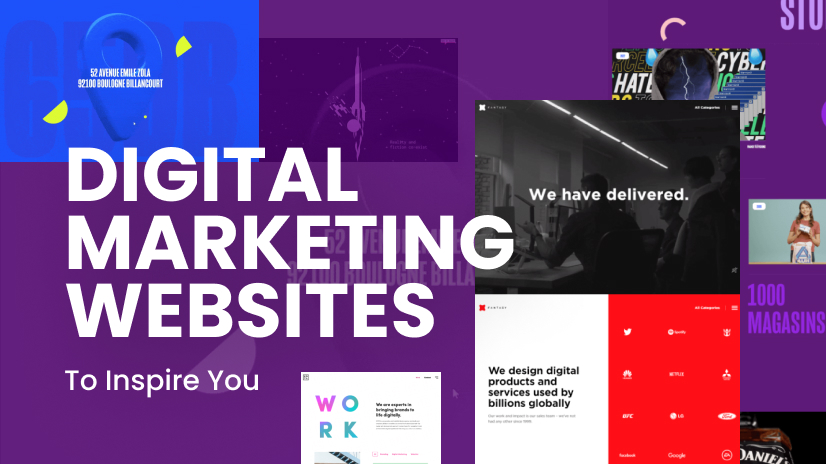Websites and digital marketing together form the backbone of modern business strategies. Digital marketing strategies rely heavily on user experience (UX). A slow-loading website with poor navigation will increase bounce rate, making SEO efforts less effective. On the other hand, optimized web performance improves Google rankings and enhances the impact of social media marketing, PPC ads, and email marketing campaigns.
This comprehensive guide dives deep into the connection between websites and digital marketing, the importance of SEO optimization, social media strategies, content creation, email campaigns, and much more. Whether you are a startup, small business, or an established enterprise, understanding the synergy between web design and digital marketing services is the key to thriving in the online marketplace.
Why Websites are the Core of Digital Marketing
A website is often the first impression a potential customer has of a business. It serves as a digital storefront where products, services, and brand values are showcased. Without a professional website design, even the best digital marketing campaigns can fall short.
Role of Websites in Building Brand Authority
- A well-structured website reflects credibility and professionalism.
- Responsive web design ensures smooth browsing on mobile, desktop, and tablets.
- Integrating SEO-friendly website development helps rank higher in search engines.
- Landing pages designed with conversion in mind boost lead generation.
User Experience and Digital Marketing Success
Digital marketing strategies rely heavily on user experience (UX). A slow-loading website with poor navigation will increase bounce rate, making SEO efforts less effective. On the other hand websites and digital marketing work together when optimized web performance improves Google rankings and enhances the impact of social media marketing, PPC ads, and email marketing campaigns.
The Link Between Websites and SEO
Search Engine Optimization (SEO) is the backbone of digital marketing. No matter how visually appealing a website may be, without proper SEO strategies, it risks being invisible to its target audience.
Key SEO Factors for Websites
- On-page SEO: Incorporating target keywords, optimized meta titles, meta descriptions, and URL structures.
- Technical SEO: Improving site speed, ensuring mobile optimization, using SSL certificates, and fixing crawl errors.
- Off-page SEO: Building backlinks from authoritative sites to improve domain authority.
- Local SEO: Optimizing Google Business Profile and using local keywords for location-based visibility.
Keywords and Content Relevance
By embedding high-search relevant keywords like digital marketing services, best SEO tools, online marketing strategies, and ecommerce website optimization, businesses can attract the right traffic. Quality content marketing built around user intent ensures visitors stay engaged and convert into loyal customers.
Social Media Marketing and Website Integration
Social media marketing is a vital part of any digital marketing strategy but it works best when connected to a brand’s website. Platforms like Facebook, Instagram, LinkedIn, and TikTok help drive traffic, but the website ultimately converts leads.
Benefits of Social Media and Website Synergy
- Adding social media share buttons boosts engagement.
- Running Facebook ads or Instagram ads with landing page links increases conversions.
- Using retargeting ads helps bring back visitors who left the website without purchasing.
- Tracking analytics from both platforms provides a full view of customer behavior.
Content Marketing for Websites and Digital Growth
Content marketing plays a central role in connecting websites and digital marketing. A brand’s website blog, case studies, whitepapers, and videos help position it as an authority.
High-Performing Content Types
- Blog posts with SEO keywords for organic ranking.
- Video marketing embedded into landing pages.
- Infographics for simplified storytelling.
- Case studies showcasing real-world results.
- Ebooks and guides as lead magnets for email list building.
By continuously publishing fresh and SEO-optimized content, businesses improve their search visibility and create assets that work long-term for digital campaigns.
Pay-Per-Click (PPC) Advertising and Websites
PPC advertising such as Google Ads or Bing Ads relies on strong landing pages. A well-designed website ensures visitors from paid campaigns convert effectively.
Why PPC Needs a Strong Website
- Ad relevance improves Quality Score, reducing costs per click.
- Landing page optimization ensures alignment with ad copy.
- Clear CTAs (Call-to-Actions) increase conversion rate optimization (CRO).
- Using A/B testing on landing pages helps maximize ROI.
Without an optimized website, even a high-budget PPC campaign may fail to generate profitable results.
Email Marketing and Website Connection
Email marketing remains one of the most cost-effective digital marketing techniques, but it thrives on website integration.
Role of Email in Driving Website Engagement
- Sign-up forms embedded on the website help grow subscriber lists.
- Personalized email campaigns bring users back to the website.
- Automated email sequences nurture leads and encourage conversions.
- Linking blog updates, product launches, and offers drives traffic consistently.
Email marketing automation tools work seamlessly when aligned with website analytics giving a complete view of customer journeys.
Mobile-Friendly Websites and Digital Marketing Success
With more than half of global traffic coming from mobile devices, mobile optimization is no longer optional. Digital marketing performance directly depends on how well a website adapts to smartphones and tablets.
Mobile Optimization Factors
- Responsive design for different screen sizes.
- Fast-loading pages to meet Google’s Core Web Vitals.
- Mobile-friendly navigation and clickable elements.
- Integrating mobile apps with website functionality for a smooth user experience.
A mobile-friendly website enhances the reach of social media ads, email campaigns, and search rankings.
E-commerce Websites and Digital Marketing
For ecommerce websites, digital marketing is the lifeline of sales. From SEO optimization to social media promotions, every strategy revolves around directing targeted traffic to online stores.
E-commerce Digital Marketing Tactics
- Product page optimization with keywords and descriptions.
- Shopping ads on Google and Bing.
- Influencer marketing to promote products on social platforms.
- Remarketing campaigns to recover abandoned carts.
- Affiliate marketing programs to expand reach.
A well-structured ecommerce website backed by strong digital marketing campaigns creates an ecosystem for consistent sales growth.
Analytics and Performance Tracking
No digital marketing strategy is complete without measuring results. Websites integrated with Google Analytics and other tracking tools help monitor traffic sources, bounce rates, conversion rates, and ROI.
Key Metrics for Websites and Marketing
- Organic traffic growth (SEO performance).
- Click-through rate (CTR) for email marketing and PPC ads.
- Engagement rate for social media campaigns.
- Lead generation numbers from landing pages.
- Conversion tracking for sales and sign-ups.
These insights guide businesses in refining digital marketing strategies for better performance.
Future of Websites and Digital Marketing
The future of websites and digital marketing is being shaped by AI-driven marketing tools voice search optimization, chatbots, and personalization technologies.
- AI in digital marketing helps automate campaigns and analyze big data.
- Voice SEO is becoming critical with the rise of smart assistants.
- Chatbots integrated into websites improve customer support.
- Personalized website content boosts engagement and conversions.
Brands that embrace these innovations will stay ahead of the competition in the evolving digital marketing landscape.
Conclusion
The relationship between websites and digital marketing is inseparable. A well-optimized website is the foundation for every successful digital marketing strategy, whether it’s SEO, content marketing, social media campaigns, PPC advertising, or email marketing. Businesses that invest in both areas simultaneously build trust, attract targeted traffic, and achieve long-term growth.
Whether you are designing a new business website, optimizing for search engines, or launching digital campaigns, remember this golden rule: your website is not just an online presence — it is the heart of your digital marketing ecosystem.




